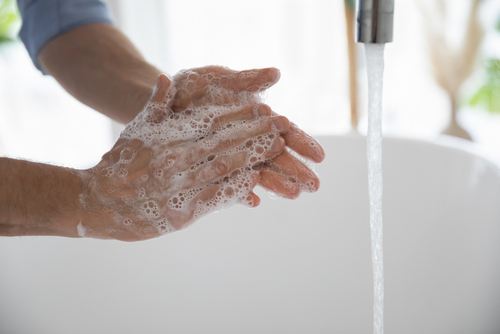Ashland City: 615-792-7136
Hartsville: 615-680-3371
Cookeville: 931-526-9111
 Every homeowner wants to ensure their home runs efficiently, safely, and cost-effectively. Knowing whether your propane water heater uses electricity might be more important than you think.
Every homeowner wants to ensure their home runs efficiently, safely, and cost-effectively. Knowing whether your propane water heater uses electricity might be more important than you think.
Advanced Propane is the leader in Middle Tennessee and Southern Kentucky for installation and service of propane water heaters, including high-efficiency propane tankless water heaters that also give you endless hot water, on-demand.
Let’s explore how these appliances work, compare them with their electric counterparts, and discuss maintenance, safety, and environmental impact. By the end, you’ll better understand your home’s energy usage and how to optimize it.
Many homeowners are unaware that some components of propane water heaters do use electricity. The primary parts include the burner, gas valve, and pilot light. But what about the thermostat, igniter, and control panel? These components often require electricity to function.
While the main energy source for heating water is propane, electricity plays a supporting role. For example, the thermostat uses electricity to regulate water temperature. Similarly, electronic igniters need power to ignite the burner.
Interestingly, some propane water heaters are designed to work without relying on the electrical grid. These models use standing pilot lights and mechanical thermostats, making them ideal for off-grid living. However, they might not offer the same efficiency and convenience as their electrically-assisted counterparts.
When comparing propane and electric water heaters, energy efficiency is a crucial factor. When choosing a water heater, check its efficiency rating and select an Energy Star®-rated one if it’s in your budget.
Propane water heaters generally heat water faster and have lower operational costs. Electric water heaters have higher upfront costs.
Propane water heaters typically have lower monthly utility bills compared to electric models. Propane is often cheaper than electricity, especially in areas where propane is more readily available. However, the savings depend on your local utility rates and the specific model of your water heater.
Propane water heaters usually have a longer lifespan than electric ones.
Regular professional inspections: To ensure your propane water heater operates efficiently and safely, regular maintenance is crucial. Schedule annual inspections to check for any leaks, corrosion, or faulty components. A professional can also verify that the venting system works correctly, reducing the risk of carbon monoxide buildup.
DIY maintenance: There are several maintenance tasks homeowners can perform themselves. Regularly check the temperature settings to prevent overheating and inspect the anode rod for signs of wear. Flushing the tank periodically can also remove sediment buildup, improving the heater’s efficiency.
Safety precautions: Safety should always be a priority when dealing with propane appliances. Install a carbon monoxide detector and a propane leak detector near your water heater, and ensure the area is well-ventilated. If you smell gas or suspect a leak, evacuate the home immediately, then call 911 and Advanced Propane.
Ready to upgrade to the superior efficiency and comfort of a propane water heater? Get in touch with Advanced Propane today to get started!